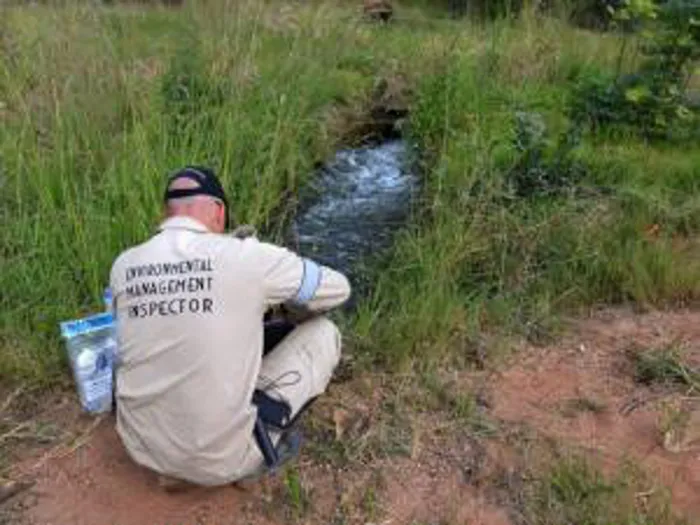
Melanie Gosling
Environment Writer
THE Department of Environmental Affairs’ “Green Scorpions” handed out more criminal dockets in the last financial year to those breaking the country’s environmental laws than the previous year – but the number of arrests they made decreased by 33 percent and the number of convictions by 16.7 percent.
The convictions dropped from 78 in 2013/14 to 65 in 2014/15.
Environmental Affairs said these figures showed that there was “room for improvement in the finalisation of investigations and subsequent convictions”.
While convictions had decreased, the number of warning letters issued by the Green Scorpions had increased by 59.4 percent from 228 to 364.
“This shows a tendency to use less formal enforcement mechanisms to achieve compliance,” the department said.
The number of the Department of Environmental Affairs’ Green Scorpions, 10 years old this year, grew by 19.8 percent last year to 2 294, yet these environmental management inspectors are unevenly distributed, with only three in the Eastern Cape and none in the Free State and Northern Cape.
While there had not been much of an increase in the number of facilities that were inspected last year, there had been a significant increase in the number of facilities that were found to be breaking environmental laws. Of the 2 889 facilities inspected last year, 2 177 did not comply with environmental laws, compared to 1 539 out of 2 849 the previous year. This represented a 41.45 percent increase.
The highest sentence of direct imprisonment without the option of a fine was handed down to Chinese national Cheng Jie Liang for the illegal possession of a ton of ivory kept in a storage facility in Milnerton. His stash represented 34 elephants.
Liang was sentenced to 10 years’ jail and a R5 million fine. Three years of the sentence were suspended on condition he pay the R5m fine within a year of sentencing.
The highest sentence for a pollution and waste case was achieved by the Department of Environmental Affairs when Samancor Chrome Ltd was found guilty on two counts and sentence to a fine of R200 000.
The department said what was “noteworthy” about this case was that the court ordered the company pay R1m to Environmental Affairs’ inspectorate division; R700 000 to the department, which was ordered to liaise with the Department of Education to develop environmental initiatives for the benefit of a local primary school; and R100 000 in prosecution costs.
“This case illustrates that the ‘polluter pays’ principle is finding effective application in our courts of law,” it said.